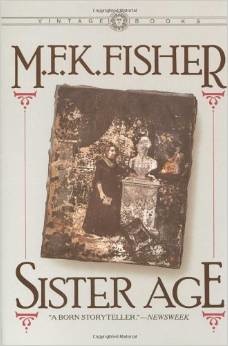In honor of Thanksgiving, I asked seniors in my memoir-writing classes to write on the subject “Thanks, but No Thanks.” To explain what I was looking for, I said, “Say you were offered an opportunity, a job, a marriage proposal, a real estate purchase, an adoption, anything, and are sorry you refused that offer, you could write about that.” I told them that on the other hand, if there was something in their lives that they were oh so thankful they said no to, they could write about how relieved they are that they said thanks, but no thanks to that offer.
Seniors worked on their essays over Thanksgiving and read them aloud in class this week. Shunned lovers and refused marriage proposals showed up in many of their stories. Other essays were about job offers they’d refused or schools they’d decided not to attend.
Ninety-four-year-old Wanda wrote that while she has learned how to use a computer to send email and write essays for class, she has no interest in tweeting or apps or looking at photos on instagram. When asked to embrace technology, she says “Thanks, but no thanks.” Judy wrote about how proud she was of the sit-upon she made while she was a Brownie, how intrigued she was by the wood-burning stoves they made from tin cans and cardboard toilet paper rolls once she’d “flown up” to Junior Girl Scouts, but then, when it came to joining a high school troop, she said no.
I can only think of one writer who wrote about regretting he’d said no to an opportunity, but even that essay had a happy ending. Dave hadn’t yet visited a foreign country by the time he graduated from college, but when he moved to Texas and a bunch of his buddies asked him to join them on a trip to Monterrey, Mexico, he decided not to go. His pals came back with all sorts of amazing stories. “I’ve regretted that decision ever since,” he wrote, but then acknowledged that foregoin Monterrey changed his life in a very positive way: he’s been adventurous ever since, taking on just about every travel opportunity that comes his way.
Mary’s essay was inspired by the title story in M. F. K. Fisher’s book Sister Age. Mary wrote that she noticed  Sister Age visiting her 60-year-old mother, “softly draping a shawl around her shoulders on cold winter nights, fixing a breakfast of warm milk toast drenched in honey and butter, accompanying her to multiplying trips to doctors and hospitals, and comforting her in attending increasing numbers of funerals of old friends.” Mary’s mother died when she was 99 years old, and Mary said that by then “Sister Age was her constant companion and nurse.”
Sister Age visiting her 60-year-old mother, “softly draping a shawl around her shoulders on cold winter nights, fixing a breakfast of warm milk toast drenched in honey and butter, accompanying her to multiplying trips to doctors and hospitals, and comforting her in attending increasing numbers of funerals of old friends.” Mary’s mother died when she was 99 years old, and Mary said that by then “Sister Age was her constant companion and nurse.”
Now Mary sees Sister Age at her own door. “She brings pills and appointments with physical therapists for my hands that move with more difficulty and my joints that stiffen and creak, eyesight that requires stronger prescriptions, nostalgic conversations with friends from high school and college, rooms full of memorabilia from Japan and all our other travels around the world, and a list of things I want to do before I am slowed to a standstill.”
Mary explained how she knows Sister Age is there: she hears her knocking at the door, and when she peers out, she sees Sister Age through the peephole. “But I resist welcoming her completely into my life and accepting her invitation to pass the threshold into my consciousness,” Marywrote at the end of her essay. “I want to say to her thanks, but no thanks – but I know that I cannot do that forever.”
Wow Beth , you were really quick in writing your blog after I finally got the right memoir to you. And I was very touched to see the comment that your friend made.
Thanks
Mary
Sent from my iPhone
>
I just wanted to tell you how much I enjoyed this most recent blog of yours, Thanks, but no Thanks. How creative! The very last 2 stories touched me the most, but especially Mary’s. My 90 year old mother passed away the day before Thanksgiving and her funeral was 2 days later on my birthday. My mom was ill for many years, on & off & oh so ready to pass on. I don’t know exactly when Sister Age went visiting my mom, but I loved Mary’s story & I’m going to see if I can find M. F. K. Fisher’s book
_____
I love MFK Fisher and I didn’t know about Sister Age. But I’d like to.
David Brooks wrote in his column about how older people are happier than their younger counterparts. I question that. There are some good aspects to old age but given the choice is this where we would want to be? I wonder. Thanks for Thanks, but no thanks.
Monna
You’re welcome, Monna. And of course you’ve heard the old adage, that “youth is wasted on the young.” — !
_____
Leave a Response